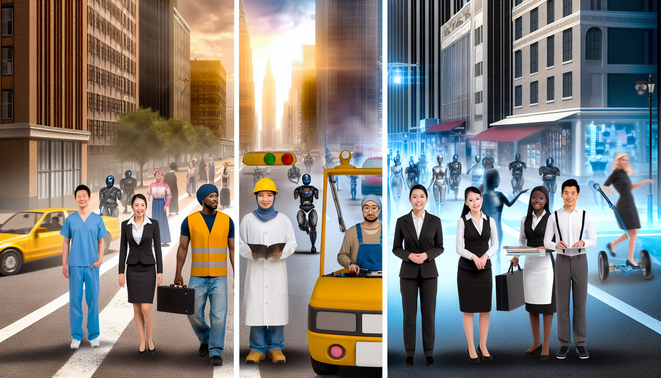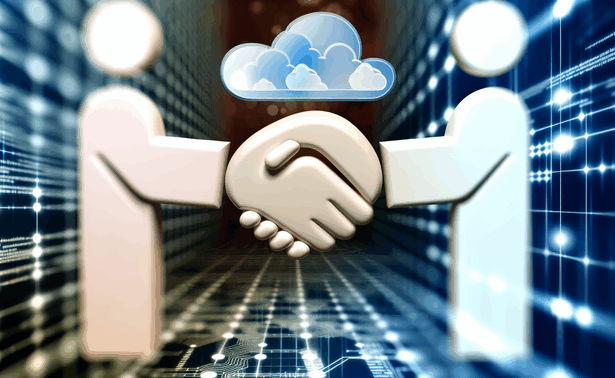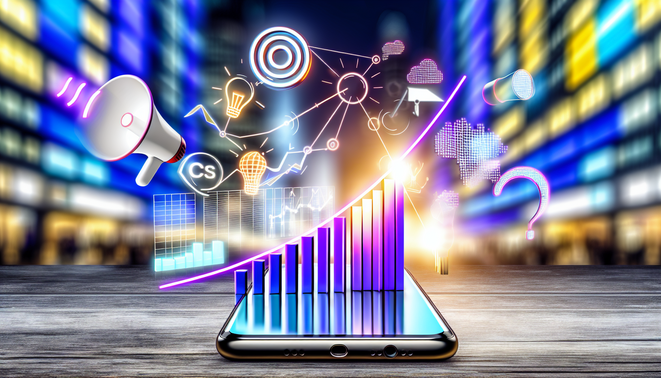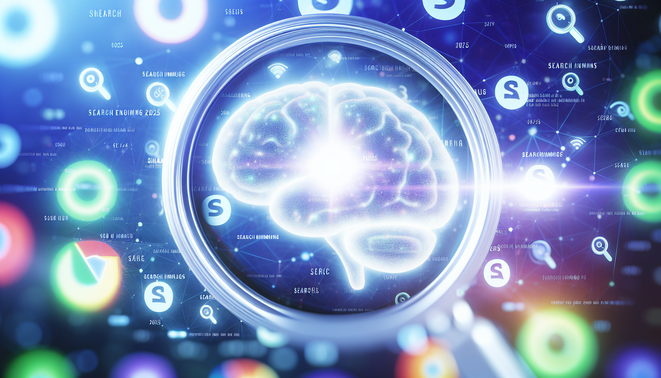Introduction: The New Era of Work
The advent of artificial intelligence (AI) technologies is dramatically transforming job markets, leading to a profound shift in the workforce landscape. With advancements in automation and machine learning, many traditional roles are evolving, as AI takes over repetitive and mundane tasks. This phenomenon, known as “job automation,” is predicted to eliminate millions of jobs while simultaneously creating new ones that require different skills. As reported by the World Economic Forum, “85 million jobs may be displaced by 2025 due to the shift in labor between humans and machines,” yet this transition is also set to generate 97 million new roles, reflecting a demand for jobs that emphasize creativity, critical thinking, and emotional intelligence.
Understanding AI and Its Capabilities
Artificial Intelligence (AI) encompasses a wide range of technologies and capabilities, fundamentally transforming industries by mimicking human intelligence in machines. At its core, AI is designed to analyze data, learn from it, and make decisions or predictions. The primary capabilities of AI include natural language processing, machine learning, computer vision, and robotics. In healthcare, for instance, AI algorithms are utilized for diagnostics and personalized medicine, facilitating faster and more accurate patient care, as noted by HealthIT.gov.
Moreover, the manufacturing sector leverages AI for optimizing supply chain management and enhancing product quality through predictive maintenance (McKinsey & Company).
Job Displacement vs. Job Creation
AI-driven automation has sparked significant discussions regarding job displacement and job creation. A study by the McKinsey Global Institute indicates that around 375 million workers globally may need to transition to different occupations by 2030 due to automation. However, the technology and healthcare sectors exemplify a paradox where some roles may be displaced, yet demand for AI specialists and healthcare professionals increases significantly (Health Affairs). The challenge lies in adapting to these changes and ensuring a smooth transition for workers affected by automation, emphasizing the importance of reskilling and upskilling.
Reskilling and Upskilling: Adapting to Change
In today’s rapidly evolving work environment, the importance of reskilling and upskilling cannot be overstated. Reskilling refers to training employees in new skills for different jobs within their organization, while upskilling focuses on enhancing existing skills. A study presented by McKinsey & Company correlates companies that prioritize continuing education with those that outperform their competitors. Initiatives focused on training employees can bolster retention and job satisfaction (Forbes).
The Future of Employment: Predictions and Trends
The employment landscape is poised for significant transformations as AI reshapes industries. McKinsey & Company predicts that AI is expected to create up to 97 million new jobs by 2025, especially in sectors like healthcare and technology (McKinsey & Company). Furthermore, the green energy sector will generate roles related to sustainability as companies invest in renewable energy strategies to combat climate change. Workers will benefit from continuous learning and reskilling programs to remain relevant in this dynamic environment (World Economic Forum).
Ethical Considerations and the Role of Policy
The ethical implications surrounding AI in the job market require serious consideration. Effective policies must address not only worker retraining but also the need for inclusive strategies supporting marginalized workers. Countries like Germany and Sweden have implemented successful vocational training programs focused on lifelong learning and reskilling. Transparency in AI decision-making processes is crucial for maintaining fairness and accountability in the job market, as emphasized by Brookings Institution.
Conclusion: Embracing AI in the Workforce
Adopting AI technologies in the workplace is essential for staying competitive. Organizations that embrace AI can enhance productivity and improve employee satisfaction by allowing staff to focus on more engaging tasks. The transition requires adaptation and reskilling to ensure that everyone can leverage these advancements effectively (World Economic Forum). As we move forward, organizations are poised to cultivate a work culture where innovation thrives, paving the way towards a more skilled and adaptive job market.
Sources
- BBC Worklife – Why Reskilling and Upskilling Are Key to Everyone’s Future
- Brookings Institution – Policy Recommendations for the Future of Work and AI
- EdTech Magazine – How AI is Changing Education
- Education Week – How AI is Affecting Education: What You Need to Know
- Forbes – The Top 5 Job Roles That Will Be Most in Demand in the Future
- Forbes – 5 Key Ethical Considerations for AI and Machine Learning
- Health Affairs – The Impact of AI in Healthcare
- HealthIT.gov – How Artificial Intelligence is Transforming Healthcare
- McKinsey & Company – How AI is Transforming Manufacturing
- McKinsey & Company – The Future of Work After COVID-19
- World Economic Forum – The Future of Jobs Report 2020
- World Economic Forum – Which Jobs Will Be in Demand 2023
- OECD – Labour Market Policies
- Statista – Gig Economy






